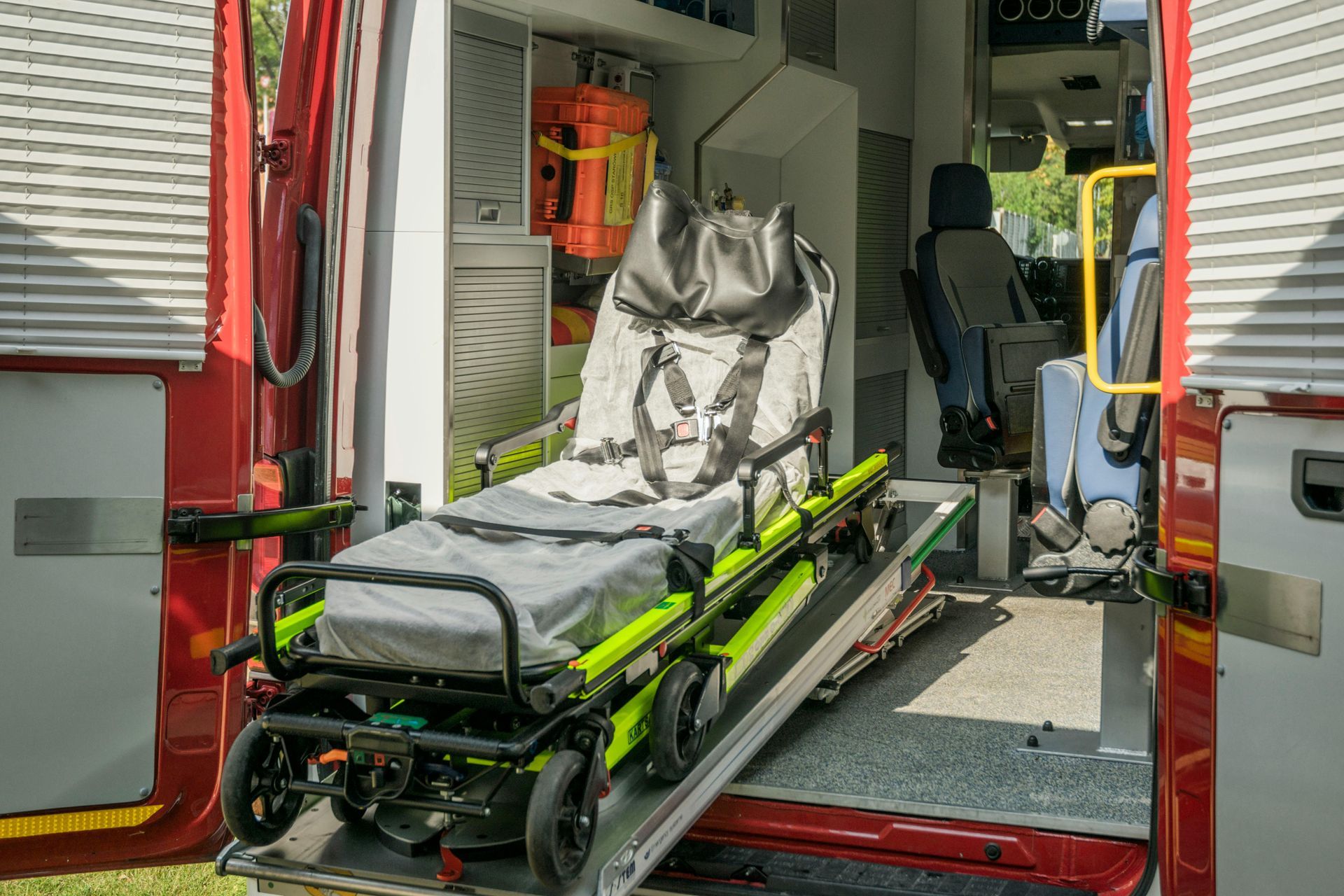Affordable Medical Transportation Options from State to State
state to state medical transportation
Affordable Medical Transportation from State to State
In today's world, access to healthcare is a fundamental right for all individuals. However, many people face challenges in accessing the medical services they need, especially when it comes to transportation. Whether it's due to physical limitations, financial constraints, or geographical barriers, finding affordable medical transportation from state to state can be a daunting task. In this article, we will explore various options and resources available to ensure that everyone has access to the necessary healthcare services, regardless of their location or financial situation.
Understanding the Importance of Medical Transportation
Medical transportation plays a crucial role in ensuring that individuals can access the healthcare services they require. Whether it is for routine check-ups, specialized treatments, or emergency situations, reliable and affordable transportation is essential. It not only enables individuals to reach medical facilities in a timely manner but also helps maintain continuity of care, especially for those with chronic conditions.
Having reliable medical transportation is particularly important for individuals with chronic conditions who require regular check-ups and follow-up appointments. It ensures that they can access the necessary healthcare services and receive the proper treatment and monitoring they need to manage their condition effectively. It also reduces the risk of complications and hospitalizations that may arise from missed appointments or delayed care.
Challenges Faced in Accessing Medical Transportation
Unfortunately, many individuals face significant challenges when it comes to accessing medical transportation. These challenges can include:
- Physical Limitations: People with disabilities or mobility issues may require specialized transportation services that can accommodate their specific needs. For example, individuals in wheelchairs may need vehicles with wheelchair ramps or lifts, while those with visual impairments may require assistance from trained drivers.
- Financial Constraints: The cost of transportation, especially when it involves long-distance travel, can be a significant burden for individuals and their families. Expenses such as fuel, tolls, parking fees, and accommodation can quickly add up, making it difficult for some individuals to afford the transportation they need.
To address the issue of financial constraints, it is important to explore all available options for financial assistance. This can include researching government programs, non-profit organizations, and charitable foundations that provide financial support for medical transportation. Additionally, some insurance plans may offer coverage for transportation expenses, so it is essential to review your insurance policy and contact your insurance provider to inquire about any available benefits.
Geographical Barriers: Living in rural or remote areas can make it difficult to access medical facilities, as the nearest healthcare providers may be located in a different state. Limited public transportation options and long travel distances can pose significant challenges for individuals residing in these areas. In such cases, it may be beneficial to research regional or state-specific programs that offer transportation assistance for individuals living in rural or remote areas. These programs may provide subsidies, vouchers, or specialized transportation services to ensure that individuals can access medical facilities in neighboring states.
Lack of Insurance Coverage: Some individuals may not have insurance coverage that includes medical transportation benefits, making it even more challenging to afford the necessary transportation. This can be particularly problematic for individuals with lower incomes or those who have recently lost their jobs and are temporarily without insurance coverage. In situations where insurance coverage for medical transportation is lacking, it is important to explore alternative options such as local non-profit organizations, volunteer driver programs, or community-based initiatives. These resources may offer transportation services at reduced or no cost for individuals who are uninsured or underinsured.
Exploring Affordable Medical Transportation Options
While the challenges mentioned above may seem daunting, there are several options available to ensure affordable medical transportation from state to state. These options include:
1. Non-Emergency Medical Transportation (NEMT) Services
Non-emergency medical transportation services are designed to transport individuals who do not require emergency medical care. These services often cater to people with disabilities, seniors, and those who cannot drive themselves. NEMT providers offer door-to-door transportation in specially equipped vehicles, ensuring the comfort and safety of the passengers. These services are often covered by Medicaid for eligible individuals.
NEMT services provide a convenient and reliable transportation option for individuals who need to travel from one state to another for medical purposes. They offer trained drivers who are knowledgeable about the specific needs of passengers with disabilities or medical conditions. Moreover, these services ensure that individuals can reach their medical appointments on time and return home safely, without the stress and burden of arranging transportation themselves.
2. Public Transportation
Utilizing public transportation systems, such as buses or trains, can be a cost-effective option for medical transportation. Many cities and states have subsidized transportation programs that provide reduced fares or free transportation for individuals with medical appointments. It is worth exploring these programs to determine if they are available in your area.
Public transportation can be an affordable and accessible option for individuals who live in urban areas or near major transportation hubs. It eliminates the need for personal vehicle expenses, such as fuel and parking fees, and allows individuals to navigate through traffic and parking challenges. Additionally, public transportation often offers accessible features, such as ramps, elevators, and designated seating for individuals with disabilities.
3. Volunteer Driver Programs
Volunteer driver programs are community-based initiatives that connect individuals in need of transportation with volunteers who are willing to provide the service. These programs are often coordinated through local non-profit organizations or community centers. They can be a great resource for those who require assistance with transportation and cannot afford traditional means of travel.
Volunteer driver programs rely on the generosity and compassion of volunteers who are willing to dedicate their time and resources to help others. These programs not only provide individuals with reliable transportation but also promote social connection and community engagement. They often operate on a donation or low-cost basis, making them an affordable option for individuals with limited financial resources.
4. Medical Escort Services
In some cases, individuals may require a medical escort to accompany them during their travels. This is especially true for patients who have complex medical conditions or require medical supervision during transportation. Medical escort services ensure that individuals receive the necessary medical care while traveling between states, providing peace of mind for both the individual and their loved ones.
Medical escort services offer a higher level of medical support and supervision during transportation. They provide trained healthcare professionals who can administer medications, monitor vital signs, and address any medical emergencies that may arise during the journey. These services are particularly beneficial for individuals with disabilities, seniors, or those with complex medical needs.
5. Telehealth Services
Telehealth services have gained significant popularity in recent years, allowing individuals to receive medical consultations and treatment remotely. While telehealth cannot replace all in-person medical visits, it can be a viable option for certain check-ups, follow-up appointments, or general medical advice. By utilizing telehealth services, individuals can reduce the need for extensive travel between states, thus minimizing transportation costs.
Telehealth services utilize technology to connect individuals with healthcare providers through video calls, phone consultations, or secure messaging platforms. This enables individuals to receive medical consultations, prescriptions, and treatment recommendations without physically visiting a healthcare facility. Telehealth can be particularly beneficial for individuals living in remote areas or those who have difficulty accessing transportation.
Resources for Affordable Medical Transportation
In addition to the options mentioned above, there are several resources available to assist individuals in finding affordable medical transportation from state to state. These resources include:
- Medicaid: Medicaid programs often cover non-emergency medical transportation for eligible individuals. Contact your local Medicaid office to inquire about transportation benefits and how to access them.
- Aging and Disability Resource Centers: These centers provide information and assistance to seniors and individuals with disabilities. They can help connect individuals with appropriate transportation services in their area.
- Local Non-Profit Organizations: Many non-profit organizations offer transportation assistance programs for individuals in need. These programs are often income-based and can provide financial support or connect individuals with volunteer driver programs.
- State and County Departments of Health: Local health departments may have information or resources available regarding affordable medical transportation options. Reach out to them for guidance and assistance.
It is important to take advantage of these resources and reach out for assistance when needed. They exist to help individuals overcome transportation barriers and ensure access to necessary healthcare services.
Conclusion
Access to affordable medical transportation from state to state is essential in ensuring that individuals can receive the healthcare services they need, regardless of their location or financial situation. By exploring the various options and resources available, individuals can overcome the challenges associated with medical transportation and access the care they deserve.
Remember to research and utilize the available resources in your area to find the most suitable and cost-effective solution for your transportation needs. By taking proactive steps and seeking assistance, individuals can ensure that they can access the healthcare services they need, improve their overall well-being, and maintain a higher quality of life.
Exploring Affordable Medical Transportation Options
FAQ-Medical Transportation from State to State
- What is the importance of medical transportation?
- Medical transportation plays a crucial role in ensuring individuals can access the healthcare services they require. It enables timely access to medical facilities and helps maintain continuity of care, especially for those with chronic conditions.
- What challenges are faced in accessing medical transportation?
- Individuals may face challenges such as physical limitations, financial constraints, geographical barriers, and lack of insurance coverage when accessing medical transportation.
- What are some affordable medical transportation options?
- Affordable medical transportation options include non-emergency medical transportation (NEMT) services, public transportation, volunteer driver programs, medical escort services, and telehealth services.
- What resources are available for affordable medical transportation?
- Resources for affordable medical transportation include Medicaid, Aging and Disability Resource Centers, local non-profit organizations, and state and county departments of health. These resources can provide financial support, connect individuals with transportation services, and offer guidance and assistance.







